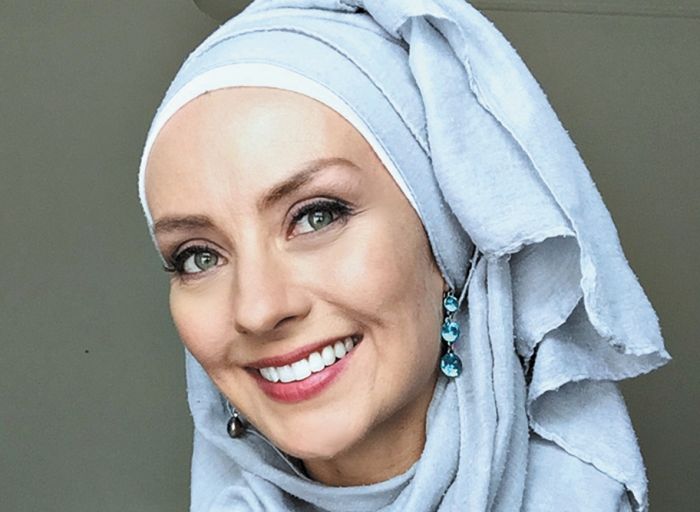
Susan Carland, lecturer at Monash University in Melbourne, has recently launched her book Women, Faith and Sexism – Fighting Hislam.
In this very significant book, Carland is challenging many assumptions about Muslim women. She points out that often “concern” for them by non-Muslims actually becomes oppression. People express “certainties” and “indignation” which are not based on realities in the living out of Islam. Additionally, people of many faiths sometimes do not use the word “feminism” because others make all sorts of assumptions about what that means in different contexts.
In order to give credibility to her views, the author interviewed 23 Muslim women and even feminists were surprised by what she found. In fact, action against sexism in her faith goes as far back in time as the life of the Prophet Muhammad. All of the women she interviewed came from either North America or Australia. Islam in these countries is highly diverse. She says that “in Australia, Muslims come from 180 different countries”.
The women she interviewed clearly had four consistent motivations for opposing sexism in Islam: “Dissatisfaction with Muslim or purported Islamic attitudes towards women; a strong personal history of fighting injustice; a period of difficulty that led to them investigating their faith’s approach to women more deeply; and a desire to have Muslim women’s voices amplified.”
Carland recognised that it is hard to balance criticism without seeming to support anti-Muslim attitudes in the community. As Karima, one of the women interviewed, says: “I don’t want to give ammunition to Islamophobes, but I can’t remain silent if something needs to be corrected. But we need to be tactful and work quietly and persistently rather than being too outspoken and noisy about it.”
These are some extracts from the book:
“As the scriptures of many religions have been used to either empower or crush women, Muslims today are facing a similar struggle. What would be surprising to scores of people, however, is that many Muslims see the Qur’an as a defence for their arguments against sexism, not as a stumbling block to women’s liberation. For many of these Muslims, it is not simply about stamping out misogyny: fighting gender injustice is itself a religious act because sexism dishonours Islam …”
“There is a long history of Muslim women working in the area of gender justice. As [Margot] Badran argues, any suggestions ‘or allegations of a supposed “clash” between “secular feminism” and “religious feminism” may result from ignorance – or, more likely, from a politically motivated attempt to impede solidarities among women’. She says secular feminism, which is frequently just called feminism, ‘offered Islamic arguments in demanding women’s rights to education, work, political rights – along with secular nationalistic, humanitarian (later human) rights, and democratic arguments’.”
“In certain circumstances – Egypt in the early twentieth century being the prime example – Muslim women using secular approaches to feminism did not necessarily mean a feminism devoid of religious consideration in the way that it is now commonly understood. Instead, their use of secularism was a way to embrace both Muslim and Coptic Christian (the largest religious minority in Egypt) women within the group’s endeavours, and to tackle both public and private forms of sexism using different tools, including Islamic sacred texts. This suggests that, at least historically, the divide between religious and secular approaches to feminism or fighting sexism was less pronounced than it is today.”
“Azizah Al-Hibri, founder and president of Muslim Women Lawyers for Human Rights, insists that ‘the majority of Muslim women who are attached to their religion will not be liberated through the use of a secular approach imposed from the outside by international bodies or from above by undemocratic governments’. There is just one way to resolve the conflicts of these women, she says; to ‘remove their fear of pursuing rich and fruitful lives is to build a solid Muslim feminist basis, which clearly shows that Islam not only does not deprive them of their rights, but in fact demands these rights for them’.”
“The vast majority of the women I interviewed did not feel their religion was inherently sexist, and actually believe it to be the most effective tool to challenge and change the sexism within Muslim communities. They attributed any sexist beliefs among Muslims to either patriarchal interpretations of religious texts by men or widespread ignorance of the unadulterated teachings of their faith.”
“Two of the women I interviewed raised stories about their journey to reconcile their faith with their commitment to gender justice. Both spoke of how they were initially made to feel there was an unbridgeable gap between Islam and the struggle against sexism, and how they had to work through those issues to come to a point with which they felt reconciled. Ayesha spoke of the process of her own reconciliation with both Islam and feminism through greater immersion in religious texts: ‘It was my own personal epiphany … because for a long time I did feel like feminism and Islam were different. But once I started reading the mystical poets and reading a lot more about women who were deeply integrated into the Islamic tradition and yet were fighting for the rights of women, it started coming together for me, and giving me a living example of that and positive example of that.”
“While much of the non-Muslim world appears dismissive of the value Islam can have in Muslim women’s lives – and truly aghast at the notion it could play any role in eradicating the sexism in Muslim communities – the women I interviewed demonstrate otherwise. For them, Islam is a crucial tool in the work of gender justice and, in many instances, is the only realistic option for transformation.”





